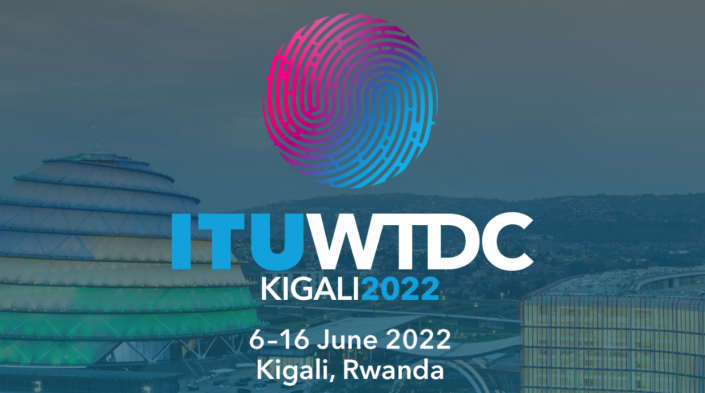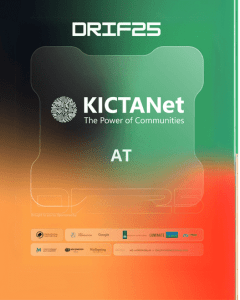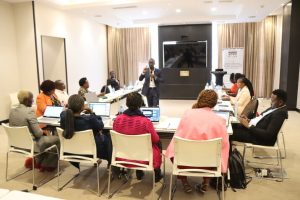International Telecommunications Union’s (ITU) World Telecommunications Development Conference (WTDC) 2022
In June 2022, the International Telecommunications Union (ITU) held the World Telecommunications Development Conference (WTDC-22) in Kigali, Rwanda. The conference which takes place every four years is responsible for setting an agenda and discussion guidelines for the ITU Development arm. Periodic conferences are held at regional levels during this four-year cycle as a mechanism for tracking progress to ensure the goals and objectives set at the WTDC are met. Among this year’s participants were Heads of State, government ministers, prominent leaders from the digital sector and top officials from non-governmental bodies. This was the 8th WTDC under the theme ‘Connecting the unconnected to achieve sustainable development was attended by 2,152 which included member states, sector members, academia, several observer entities, youth, the United Nations and its specialized agencies. KICTANET participated in this year’s WTDC as part of the APC delegation and has been an ITU Development sector member since 2014. This year’s delegation through the Local Networks (LocNet) initiative aimed to bring more visibility to community networks and advocate for support at national, regional and global levels.
This year saw the launch of inaugural meetings such as:
- The Generation Connect Global Youth Summit brought together over 420 youth from across the globe. The outcome of this youth summit was published in a “My Digital Future” document.
- The Network of Women (NoW) was started in 2021 with the aim of promoting women’s participation in ITU-related activities as well as gender mainstreaming in the ITU.
- Partner2Connect (P2C) is a multistakeholder digital coalition aimed at fostering public-private partnerships with the aim of achieving universal meaningful connectivity. The coalition which was launched in 2021 has been able to mobilise over 485 pledges estimated at $28.23 billion.
The key outcomes of WTDC 2022 were:
- The Kigali Action Plan maps out digital development and a work plan that will be executed by ITU-D and the Telecommunication Development Bureau (BDT) for the next four years working towards meaningful universal connectivity and sustainable digital transformation.
- The Kigali Declaration underscores the conclusions, priorities and collective commitment of the delegates toward universal and meaningful connectivity.
Digital inequality pertaining to the lack of access to telecommunications/information and communication technologies (ICTs) due to affordability and lack of skills was acknowledged during the conference with the ITU-D study groups recognising complementary access networks and solutions and their role in helping bridge the digital divide.
A huge milestone for community networks was in resolution 37 on Bridging the Digital Divide, in which member states resolved to instruct the Director of the Telecommunication Development Bureau to:
“Encourage innovation and accelerate the use and adoption of emerging digital technologies and the development of business models or other innovative ways to help telecommunication operators, as well as telecommunications/ICTs complementary access networks and solutions in reducing costs, overcoming geographic obstacles that lead to acceleration of digital inclusion to bridge the digital divide;
To continue to support member states in the case where requested, in developing policy and regulatory frameworks that could expand and support the engagement of telecommunications/ICTs complementary access networks and solutions in bridging the digital divide”.
During the event, the team held several bilateral meetings with regulators and partners from across the globe to discuss potential collaborations and partnerships.
This is a series of our publications on Community Networks.
______________________________________________________________________
Josephine Miliza is a network engineer passionate about enabling African communities to leverage digital technologies for socio-economic empowerment. Josephine is the KICTANet Africa policy coordinator for Community Networks.T
Twitter – @Msmiliza.




